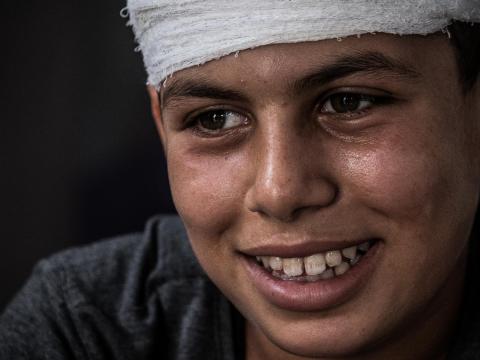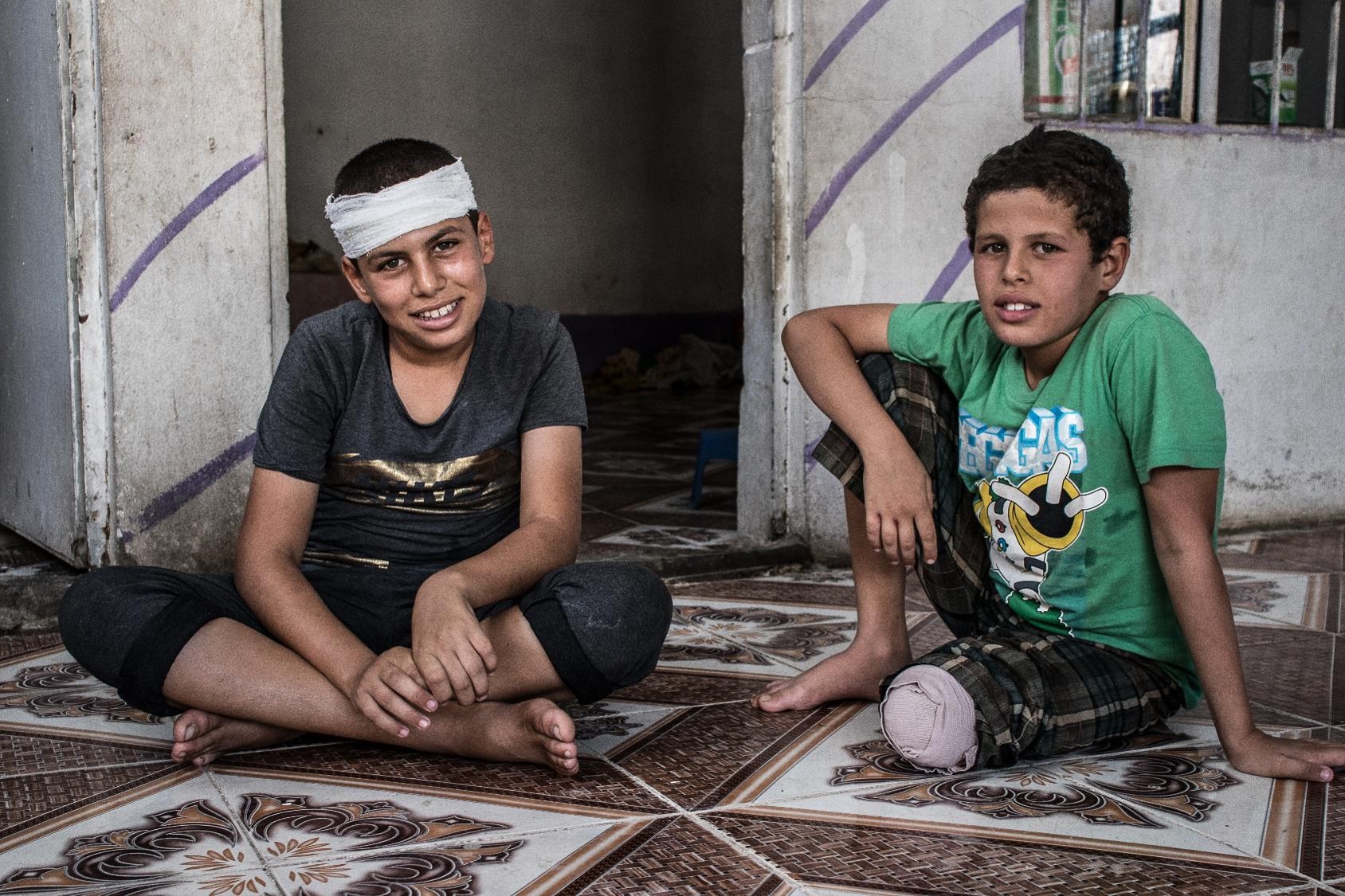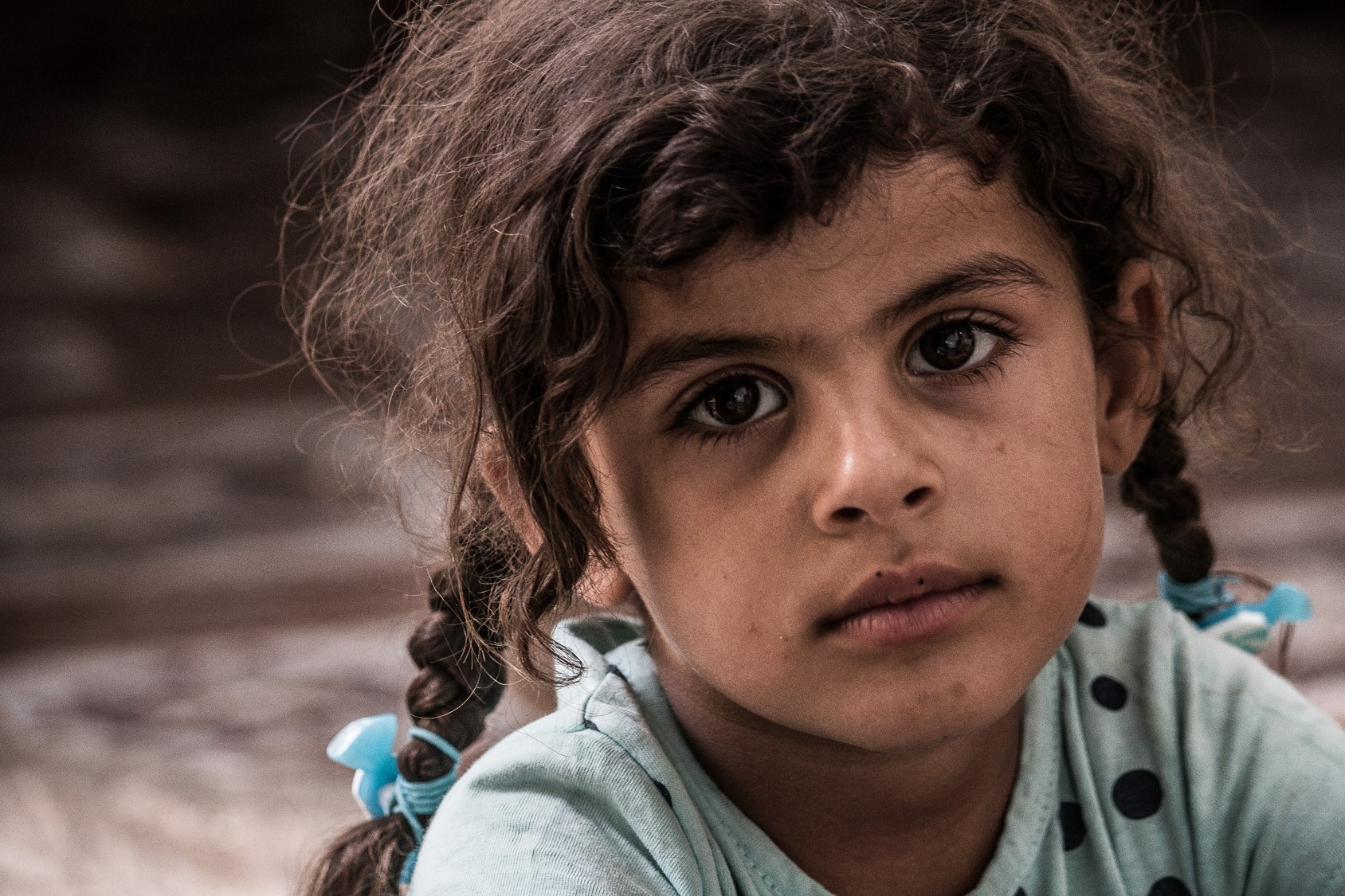Mosul’s injured children: “I hope to have a leg in the future”

Story and photos by Sacha Myers, Communications Specialist, World Vision in Iraq
On the surface, life is returning to eastern Mosul.
Market stalls are stacked with fresh fruit. Cars buzz around the busy streets. Piles of new bricks and timber signal the first stages of repairing the damage.
But scratch the surface, and life is far from normal.
Eleven-year-old Omar and his family rent a small apartment in the back streets of eastern Mosul. The rooms are bare apart from a few thin mattresses on the floor. Inside there is little relief from the midday heat.
Omar’s father, Hathi, sits on the ground with his back against the wall. Their story of the past three years tumbles from his lips.
“ISIL destroyed us. Destroyed our life,” he says.
“They killed people. Things got worse. We were eating only flour and water. We mixed them together and we all ate it. We had never seen this kind of poverty.
“By the time the Iraqi troops arrived, we only had 20kg of flour left in the house. There were 10 people – two families – in the house sharing one bag of flour.
“Life was very difficult – there were bombs and the bodies in the streets. We could hear people crying and screaming in the streets because when they tried to leave, ISIL would kill them. Sometimes people had to leave their family members who were injured laying in the street. They couldn't carry them when they left.”
Omar remembers ISIL coming to his school and his life changing forever.
“When ISIL came, they used the playground for bombs,” he says.
“I was in third grade when ISIL arrived. They took over the school and we didn't go anymore. I spent one day in the ISIL school but I didn't want to go.
“They taught us about bombs and guns and how to kill people. They taught us how to use the gun and separate it into parts.”
As the fighting intensified, Hathi prepared his family to flee the city.
Omar was excited when he heard his family were escaping. He started packing his sports bag and talked enthusiastically about how he would soon play football again.
The bomb hit the house without warning.
“The explosion happened at 12 noon,” Hathi says. “I tried to find my children. I found five children who had been killed. They were my cousins’ children.
“I was shocked and unbelievably distressed because my cousins’ children had died in front of my eyes and I couldn't help them. We buried them in the yard because we didn’t have anywhere else to bury them.
“Omar lost his left leg and he lost a lot of blood and was very pale.”
Ahmed and Nadar, Omar’s siblings, were also injured in the explosion. A piece of shrapnel lodged in Ahmed’s skull, and left him with brain damage. And four-year-old Nadar now bears a large scar down her stomach where shards of shrapnel pierced her soft skin.
The family has been living in the apartment in eastern Mosul for the past month. They are safe. But their problems are far from over.
“We don't have work. We don't have food. The biggest problem is that we cannot pay for the rent. We don't have the ability to pay the electricity bill and we've been told the electricity will be cut next month,” Hathi says.
“When we tried to take the children to the hospital we asked the neighbours for money because we didn't have any. And now we are in a lot of debt.
“We want to send the children to school. But we don't have clothes and money to buy a bag for the children.”
Omar is still hopeful he’ll return to school in September when classes recommence. He’s missed three years of school and is determined to go back again. He used to dream of becoming a football player. Now, his dreams are different.
“I hope to have a leg in future,” he says.
Omar’s mother looks at him and her eyes shine with tears. But he gives her a big smile and says when he gets a new leg, he can play football again.
Children in Iraq have endured years of catastrophic conflict. Since 2014, 3.3 million children and adults in Iraq have been forced to leave their homes and seek shelter from the fighting.
World Vision is working in camps and urban areas throughout the Kurdistan Region of Iraq. We provide emergency assistance to families including food, water, blankets, stoves, mattresses and healthcare. We also support children and adults with longer-term education, protection and economic development programs to help them recover and start rebuilding their lives.
As part of World Vision’s child protection programs in eastern Mosul and in the camps, we have teams of social workers who identify some of the most vulnerable children. The social workers offer psychosocial support and connect children and their families with other services, such as hospitals and disability assistance, to improve their lives. They also help reunify unaccompanied and separated children with their families.
We are currently helping Omar and his siblings to access healthcare and arranging for Omar to receive a prosthetic leg and a wheelchair.

